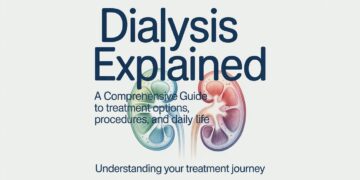Panic attacks are intense episodes of fear and anxiety that can be quite distressing. They come on suddenly and can feel overwhelming. Understanding the causes, recognizing the symptoms, and learning how to manage panic attacks are important steps in dealing with this condition.
Causes of Panic Attacks:
Panic attacks can be triggered by various factors, although the exact cause may not always be clear. Some common causes include:
- Genetics: A family history of anxiety disorders or panic attacks can increase the risk.
- Stress: High levels of stress or chronic stress can contribute to panic attacks.
- Trauma: Past traumatic experiences, such as accidents, abuse, or loss, can be triggers.
- Chemical Imbalance: Changes in brain chemistry, particularly in neurotransmitters like serotonin and norepinephrine, may play a role.
- Major Life Changes: Significant life events, such as marriage, divorce, job changes, or moving, can trigger anxiety and panic attacks.
- Phobias: Specific phobias or social anxiety can lead to panic attacks when facing feared situations or objects. Refer to a Psychiatrist in Lahore to know more.
Symptoms of Panic Attacks:
Panic attacks are characterized by a sudden onset of intense fear and anxiety. Common symptoms can include:
- Sudden and Intense Fear: A feeling of impending doom or extreme fear.
- Physical Symptoms: Rapid heart rate (palpitations), shortness of breath, chest pain or discomfort, trembling or shaking, sweating, nausea or abdominal distress, dizziness or lightheadedness, and chills or hot flashes.
- Emotional Symptoms: A sense of detachment from reality, fear of losing control or going crazy, fear of dying, and overwhelming worry.
- Behavioral Symptoms: Attempting to flee the situation or escape, clinging to a person or seeking help, and restlessness.
Management of Panic Attacks:
Here are some strategies for managing panic attacks:
- Practice Relaxation Techniques: Deep breathing, progressive muscle relaxation, and mindfulness or meditation can help reduce physical and emotional tension.
- Cognitive-Behavioral Therapy (CBT): CBT is an effective therapy for managing panic attacks. It helps identify and change thought patterns contributing to anxiety and panic.
- Medication: In some cases, a healthcare provider may prescribe medication like antidepressants or anti-anxiety medications to help manage panic attacks.
- Lifestyle Changes: Maintaining a healthy diet, regular exercise, and getting enough sleep can reduce stress and anxiety. Limiting caffeine and alcohol, and staying hydrated are also important.
- Identify Triggers: Keep a journal to identify specific situations, thoughts, or behaviors that trigger panic attacks. Understanding your triggers can help you avoid or manage them.
- Seek Professional Help: If panic attacks significantly affect your life, consult a mental health professional for diagnosis, therapy, and guidance on treatment options.
- Support Groups: Joining a support group for individuals with anxiety or panic disorders can help you connect with others who have similar experiences and learn coping strategies.
Panic attacks can be managed effectively with the right strategies and professional help. If you or someone you know experiences frequent or severe panic attacks, it’s essential to seek guidance from a mental health professional at MaxHealth Hospital for diagnosis and appropriate treatment. Remember that many people find ways to deal with panic attacks and feel better with time and support.
Also Read Interesting Articles At: Tech New Master.

















